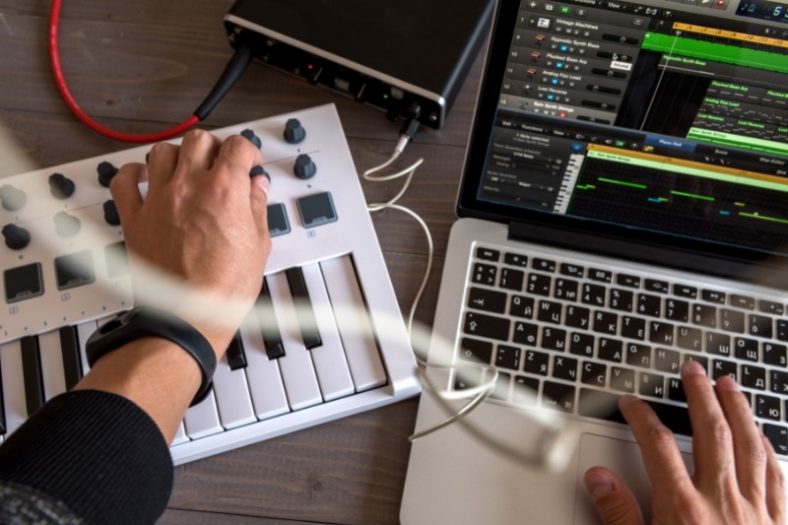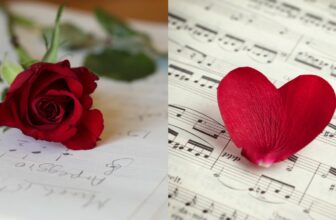Will We Ever Run Out of New Music and Melodies?

It’s quite natural to wonder whether we will eventually run out of new music, particularly because giant music platforms, such as Spotify, already feature more than 70 million songs in their catalog. While some say ‘never’, others want to prove otherwise.
At some point in our history, will all the possible combinations already have been recorded, leaving us without any new music to compose and to listen to? We can approach this topic from different points of view.
Is it just a matter of melodic combinations? Is it an issue connected to the format in which our music comes in? What about variety in lyrics? Let’s briefly see how these various aspects contribute to our question and the answer(s) to that.
Contents
A finite number of melodies and progressions
Even if we approach the matter from a strictly musical point of view, calculating the number of possible melodies we can create within an octave, with all the different intervals and tempos we know of, the number would be extremely big, made up of about 36 digits, but it would, again, be finite.
Of course, we could include non-Western scales and patterns into the equation, widening the number of possibilities. The total, however, would still be finite. A large number, so large it would be hard to imagine it, but still finite.
From a chord progression point of view, on the other hand, the number of possibilities drastically reduces, a fact we can easily understand by looking at how popular Western music is based on certain specific and repetitive chord progressions.
In 2011, comedy Band The Axis of Awesome published a fortunate YouTube video that analyzed how the classic chord progression I – IV – vi – IV is used in almost all of the hits we know and love. A gigantic mashup of songs from different genres, styles, and eras, the video, viewed by more than 40 million people, funnily expresses a big truth: music is built around recurrent and predictable patterns.
Is this a sign we are running out of new music? Before finding out, let’s approach the matter from one more point of view.
Lyrics and meters
If we analyze lyrics, we’ll find out that the common meter is used in a huge number of songs.
A traditional poetic meter, which we can find in poems by Oscar Wilde, Emily Dickinson, or William Wordsworth, the common meter alternates iambic tetrameters (four metrical feet) to iambic trimeters (three metrical feet). In each line, a foot contains an unstressed syllable followed by a stressed syllable.
Many rock, pop, and folk songs, such as The House of the Rising Sun or Amazing Grace, use this meter.
So, even if we approach our question not from a musical, but from a metrical point of view, we’ll still find recurring patterns and schemes.
Did humans really run out of original ideas, then?
Digital music algorithm – Ones and Zeros
Digital music, the format we all produce and consume nowadays, is made up of a group of bits that can only be either 0 or 1. The combinations of these zeroes and ones are a lot, but, despite being a huge number, they are finite.
If we approach the matter from this point of view we must conclude that, at some point, we will have used all the possible combinations of bits. However, number of these combinations is higher than the number of atoms forming everything placed on our planet, so we can probably relax and not worry too much about this!
Check out this great video by VSauce below if you want to dig deeper into that!
Is it a matter of combinations or a matter of taste?
From what we highlighted in the previous paragraphs, we could conclude that producers and songwriters are using only a small number of the almost infinite possibilities mathematically achievable.
Numbers aside, we should probably ask ourselves: how may a truly innovative song be perceived?
If songwriters and producers used all of the melodic combinations, all of the different meters if they dared to write unheard lyrics in an unheard way, would listeners still enjoy their songs?
To answer our question, we must take into account our tastes, influenced by our culture and our emotions, and how music often plays a great role, accompanying us in pivotal moments of our lives.
It doesn’t matter whether we can mathematically run out of new music at some point because, in truth, we are so bound to specific musical patterns we can’t be bothered to discover something different. In other words, we are just happy enough with the combinations of melodies, chord progressions, and meters we have explored so far.
Of course, tastes and cultures can radically change at some point in history. Those changes, however, are usually very slow to occur, and even when musical revolutions happen (such as what we experienced with the rise of rock’n’roll), we can still find certain elements that bring us back to the past. Rock’n’roll, after all, was built on traditional blues progressions, rhythms, and lyrical patterns.
The similarities we can often perceive between different songs are not there because we are running out of new music, but because the human minds and ears just feel comfortable with those specific patterns and schemes.
In conclusion, yes, we may run out of new music at some point in the distant future, but this problem won’t affect us, as we, as a society, tend to stick to those rules and patterns that define our taste, our history, and our culture.
Summary
This is not a question to be answered easily as we just discovered, and we still don’t know what the future holds for us. What’s certain is that we won’t run out of new music in the near time due to its sheer amount of combinations.
We may run out of truly innovative songs as our tastes tend to cling to established patterns. However, this just means that we are exposed to a limited range of stimuli thus limiting our creativity to discover new things.
Adding the fact that music has always been an important element in human societies, I would say that music will be around even if it loses its originality.





